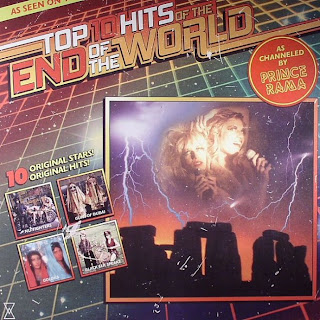just one of the points, from the footnotes:
"If you are searching for a sphere where the past is still fading away – it is software. There are niches like Retro gaming, but in the mainstream there is still a clear model of historic progress. And everything outside this ends at the digital junkyard"
- that is very true and it relates to things some other folk have suggested to me, e.g. this young man Ashley Bodenham who, talking about feeling an exhaustion with music, said that he'd "turned away from hoping for a really new music and turned to videogames because I think they manage to avoid both the retro and content overload culture; there is a retro tendency in videogames but I think that runs parallel with pretty exciting never seen before things and I also think most people still buy games and they are quite expensive so you tend to commit yourself to them, which is what turned me off seeking out new music, the endless options and easy access"
This got me thinking about my 13 year old, who has minimal affect as regards music (he likes it; I don't think he would ever buy it) but who is a fanatic for games (and for anything to do with computers - apps, social media, etc). What I find faintly heartening is that, despite the non-interest in music, there's still a chip-off-the-old-block aspect at work, in so far as he's still caught up in that same psychology of obsession, which is inseparably coupled with obsolescence.
So there's that quasi-modernist linearity within which he exists, like I did as a teenager (and subsequently continued to do during my unnaturally extended adolescence, which still isn't fully ended, for better or worse). A linear propulsion driven by the superceding and discarding of the passé; a constant moving on, fueled by a restless insatiable desirousness for the "new". This lends his life a sense of acceleration, that irritable excitement based in the double-sided syndrome of anticipation / impatience. However the units of obsession and neophiliac fixation are much more expensive than records.... and whereas a certain percentage of music bought tends to survive as abiding favorites, joining the permanent collection, the stockpile of future nostalgia... with the games and other digital pleasure tech, in most cases it does seem to get outmoded rapidly and ruthlessly (e.g. his Wii, which sits idle and dust-covered in the bedroom upstairs,bereft and wholly abandoned). So while he and I can both be accurately and fairly described as dupes of the capitalist entertainment complex, in his case the cost is quite a bit higher and the losses less recoupable. (I also, of course, feel that music is emotionally and spiritually richer than games; that music points to things outside itself - the portal syndrome -- much more than the gameworld does. But that is doubtless me being trapped inside my generational biases, being someone who simply missed the whole games thing altogether).
What is really interesting, though, is that for my son (and his generation?), while he stills lives inside this propulsive linearity of chasing the new and the latest, the concept of "the future" doesn't seem to exist for him. Nor in fact does "space", as in "outer space", the Beyond. (Like "future", space = Jameson's "desire called utopia").
Everything that is happening, all the action, is going on inside -- literally indoors, but also inside the non-space or post-space in which things like Minecraft (his big obsession - I should say, current obsession) take place. I observe in him, with fascination but also concern, a non-cathexis towards the Outer, the Outside as a phenomenological category. The sky seems to hold no special fascination for him. But then perhaps that makes sense: what after all would be the point in projecting out towards something that will remain unreachable in our lifetimes?
^^^^^^^^^^^^^^^^
and here's some nostalgia for the phuture that Datacide crew might find acceptable






































